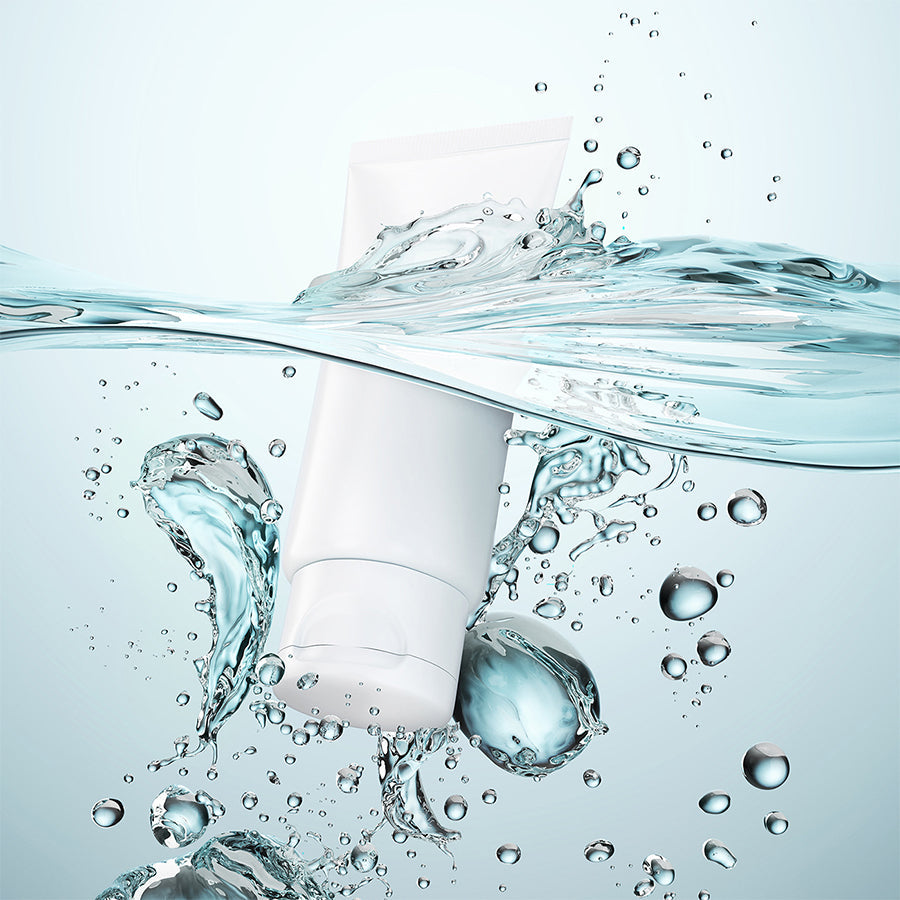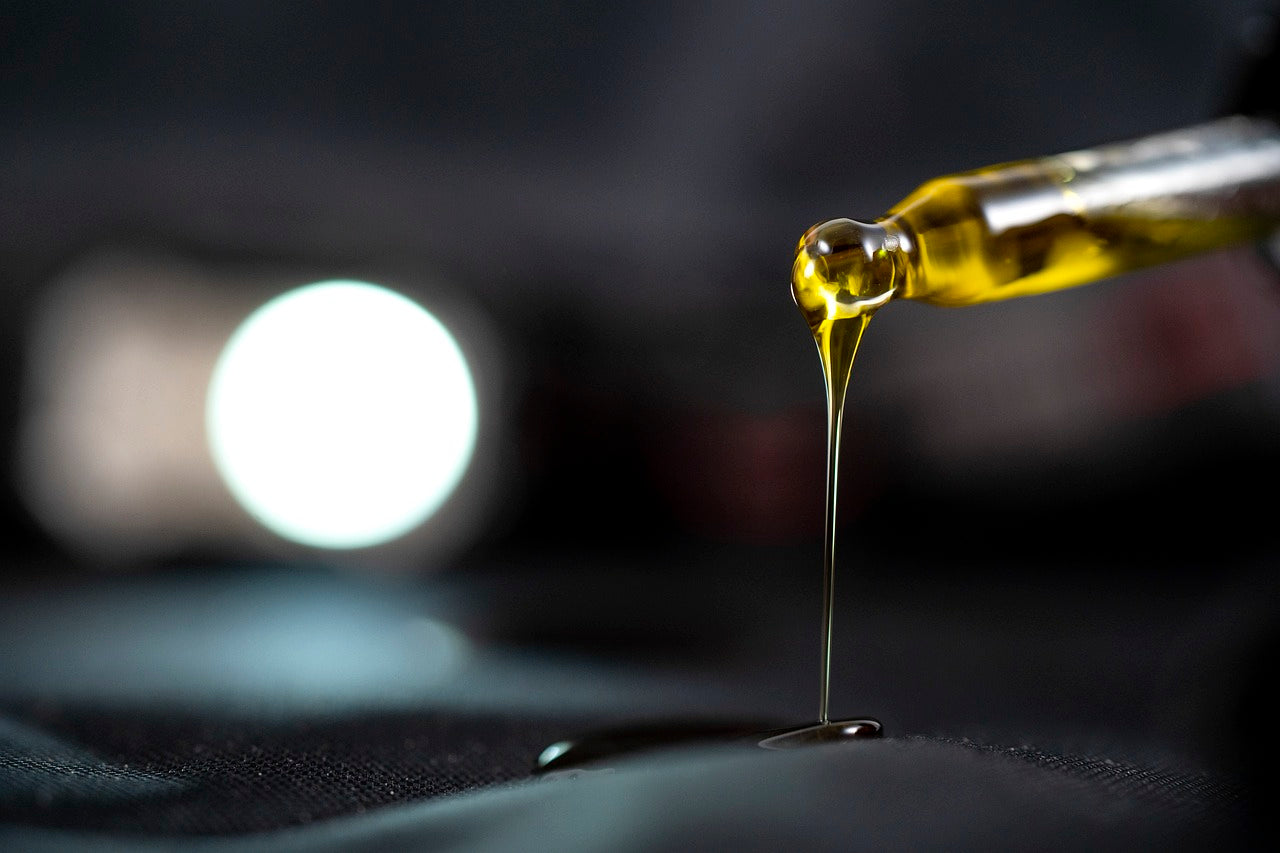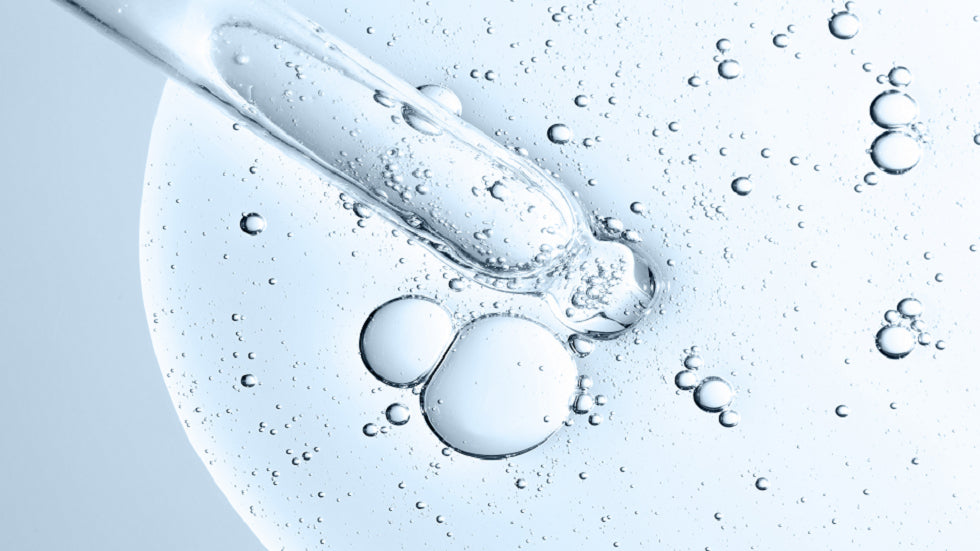Using hyaluronic acid for skin has now become the norm in the skincare industry and for a good reason.
This ingredient is a gold standard for delivering deep hydration and promoting a strong and healthy skin barrier – the reason why it is often called a “moisture magnet”.
In this blog, we talk about the top hyaluronic acid skin benefits and the best ways to incorporate this powerhouse ingredient into your skincare routine.
What Is Hyaluronic Acid?
Hyaluronic acid (HA) is a gel-like substance our body produces naturally. It is also known by other names, such as sodium hyaluronate, hyaluronan, and hyaluronate.
This gooey, slippery compound is a group of sugar molecules, and it is present throughout our body, especially in the skin, connective tissues, joints, and eyes.
In fact, the highest volume of HA produced by our body, nearly 50% of it, resides in our skin. Its primary function is to attract and retain moisture to keep the skin hydrated, plump, and supple.
Why Use Products With Hyaluronic Acid For The Face Or Body?
Though HA is naturally present in our skin, we don’t have an endless supply of it. As we age, the production and synthesis of this compound start declining, and this causes dryness, fine lines, and other issues.
Using topical formulations, such as serums or moisturizers with hyaluronic acid, is a great way to compensate for the declining levels of naturally produced HA in our skin.
So, where does the hyaluronic acid in skincare products come from?
HA was traditionally extracted from animal sources, but with the advent of biotechnology, brands are now using plant-derived and lab-synthesized versions of it. Most hyaluronic acid serums and creams today contain HA produced in labs through microbial fermentation.
Hyaluronic Acid Skin Benefits
From hydrating the skin to maintaining a strong moisture barrier, HA plays many crucial roles in keeping your skin healthy. Here are some of the top hyaluronic acid uses for the skin:
Hyaluronic acid for skin hydration
Did you know that HA can hold up to 10 times its weight in water? It is no surprise that in the world of skincare, hyaluronic acid is synonymous with hydration.
HA is a humectant – it draws in water from the atmosphere and from the deeper layers of the skin and binds it to skin cells. This replenishes the skin’s moisture levels and keeps it hydrated and supple.
Hyaluronic acid for sensitive skin
One of the most remarkable hyaluronic acid benefits for the skin is that it is a skin-identical or biomimetic ingredient. Since this compound is naturally present in the skin’s structure, our skin recognizes and accepts it as its own.
When you apply a hyaluronic acid cream or serum, it does not cause irritation because your skin is already familiar with it. This quality of HA makes it a highly tolerated skincare ingredient, especially for people with sensitive skin.
Hyaluronic acid for skin barrier repair
The outermost layer of our skin, or the moisture barrier as it is also called, is our natural defense against UV rays, environmental pollutants, toxins, and excessive water loss.
However, it undergoes damage due to sun exposure, poor skincare habits, and many other factors. A weakened barrier causes dryness, fine lines, wrinkles, and inflammation.
One of the best ways to repair and restore the skin’s barrier is to keep it hydrated. Humectants, such as HA, attract moisture and hold it to the skin, thus providing lasting hydration. This, in turn, helps strengthen the barrier and boost its function.
Hyaluronic acid for acne and breakout reduction
Did you know there is a direct connection between dry skin and acne? Dehydration causes your skin to produce more sebum to compensate for the lack of moisture. Overproduction of oil clogs your pores and leads to breakouts.
Using a hyaluronic acid face cream or serum can significantly address this concern. By maintaining the moisture balance in the skin, it inhibits the overproduction of sebum and minimizes acne and breakouts.
Also, HA is a lightweight and non-comedogenic ingredient – it delivers deep hydration without clogging your pores. So, if you have acne-prone skin, consider using creams or moisturizers with hyaluronic acid for the face to regulate oil production and clarify the skin.
Hyaluronic acid for skin firmness, fine lines, and wrinkles
One of the key hyaluronic acid benefits for the skin, as we have seen, is that it increases the moisture content. Properly hydrated skin makes the skin look dewy, smooth, and plump, and this helps minimize the appearance of fine lines and wrinkles.
Studies have shown that HA can significantly reduce the depth of wrinkles – approximately 40%. Regular use of HA can also improve the firmness, texture, smoothness, and elasticity of the skin.
How To Incorporate Hyaluronic Acid Into Your Skincare Routine?
Since HA is a biomimetic ingredient well-tolerated by the skin, it is easy to incorporate it into your skincare routine. Here are a few things to consider:
Choose the right products
Since the primary purpose of using hyaluronic acid for the skin is hydration, look for leave-on products such as moisturizers and serums.
Also, unlike retinol and exfoliating acids, HA does not make your skin sensitive to the sun, so you can use it in both your AM and PM routines.
If you wish to include this mega hydrator in your nighttime routine, BodyTree’s night cream with hyaluronic acid is a great choice. In addition to HA, it comes loaded with other skin-identical ingredients for optimal hydration and protection.
Choose the right type of HA
There are different types of HA. Low-molecular-weight HA penetrates deep into the skin and provides intense hydration. If hydration is your primary goal, choose this type of HA.
High-molecular-weight HA, on the other hand, sits on the surface of the skin. The latter is ideal for soothing inflammation and making the skin appear plump and elastic.
Pay attention to the percentage
Concentration is another factor to consider when choosing hyaluronic acid for skin hydration. Keep in mind that the maximum recommended concentration of HA is 2%.
Most HA products available in the market today have a concentration of 0.5% to 2%. If you are looking for optimal hydration, don’t go for products with concentrations below 1% - something between 1% to 2% concentration is ideal.
Find out what works with HA
Since HA is a mild and safe ingredient, it usually works well with most skincare ingredients. HA and retinol are a powerful duo for hydrated and radiant skin, and it works well with ceramides since they both are skin-identical ingredients.
You can pair it with Vitamin C to get the best of hydration and antioxidant protection. Mixing it with exfoliating acids like AHAs and BHAs will help restore the moisture levels in the skin.
In addition to these, you can pair HA with other ingredients like peptides and niacinamide.
Final Thoughts
Hyaluronic acid is a mega hydrator with many skin benefits. Incorporating it into your routine will provide your skin with lasting hydration while ensuring a healthy skin barrier.
FAQs
Can I use hyaluronic acid on my face every day?
Yes. HA is an excellent hydrator and is mild enough to use on the face every day. Introduce it gradually and use it up to twice a day, both morning and night.
Which is better, hyaluronic acid or niacinamide?
If your primary goals are hydration and skin barrier health, HA is an excellent option. Niacinamide, on the other hand, is ideal to regulate oil production and soothe inflammation. You can combine these ingredients to enjoy the benefits of both.
Which is better, hyaluronic acid or retinol?
HA is a hydrating ingredient, while retinol promotes skin cell turnover and renewal. Retinol is a potent ingredient that might cause irritation and dryness. However, using it along with HA can help offset such side effects.
Are there any hyaluronic acid side effects I should be aware of?
HA is a skin-identical ingredient. It is mild, gentle, and generally considered safe when used in the right concentration. However, always do a patch test before introducing a hyaluronic acid face cream or serum into your routine.
Also Read:



